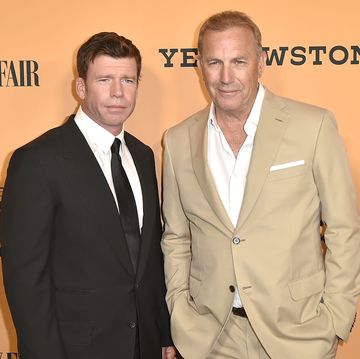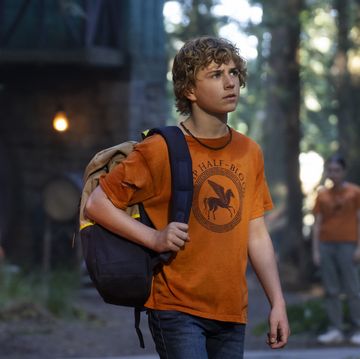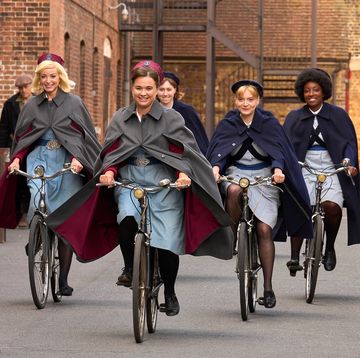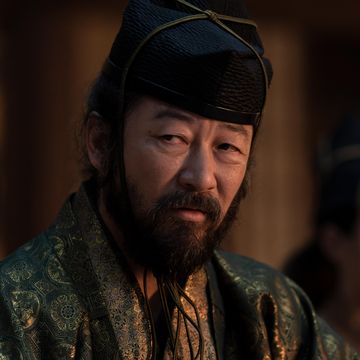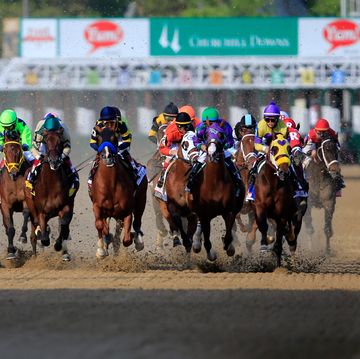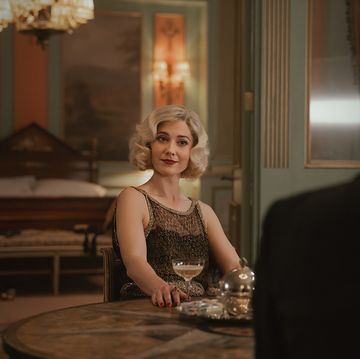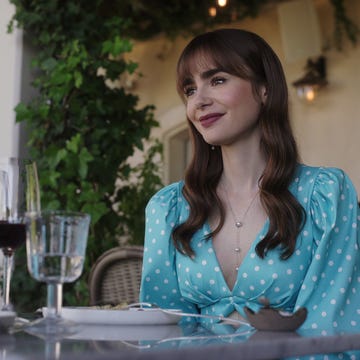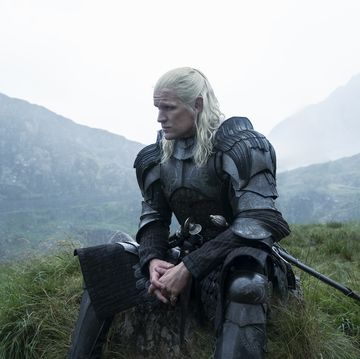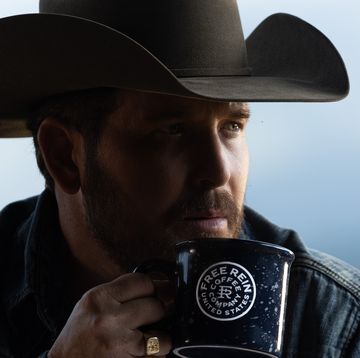As the great reckoning of our modern moment roils on, privilege is a filthy word and bullying is firmly out of fashion. The closest we’ve got to garden-variety teenage tyrants are woke celebrities with late-night trolling tendencies, and we all know how that’s going. And yet… our love of mean girls in Manolos is hard to give up. Decades after its initial detonation, Gossip Girl, that ur text of Upper East Side excess and laissez-faire mores, shows no signs of dying down.
Coming on 20 years after publishing the first installment in the franchise, publisher Little Brown has reissued author Cecily von Ziegesar’s first three books with cover art whose chicly flat depictions look like Alex Katz prints than knapsack contraband. Meanwhile, a 10-episode reboot of the cult television show, helmed by original producers Stephanie Savage and Josh Schwartz and written by original head writer Joshua Safran, debuts July 8 on HBO Max. The coronavirus pandemic hit days before the production had started filming, delaying a release date until summer 2021, yet the network was so bullish it placed an order for an additional 10 episodes before they’d wrapped the first season.
If the original Gossip Girl television show went down like candy, the books worked on us more like drugs—and not because of the toxins that coursed through the pages. They’re addictively wicked, with prose as arch and merciless as the world that they satirize. This is an outrageous milieu populated by wealthy naval captains, lesbian headmistresses, and gorgeous teenagers whose internal monologues are master classes in cynicism. (“The only way to tolerate the city in August is to get naked,” one memorably opined.) This is not a story about people who are fabulous by dint of fame or talent; they are merely, perfectly, to the Museum Mile born. Like a Betty and Veronica for a new age of entitlement, the main characters Serena van Der Woodsen and Blair Waldorf—one a “boho” by billionaire’s standards, the other a full-tilt Bendel’s girl—managed to keep readers (and, later, television watchers) simultaneously rooting for and against them.
The books’ echoes of Edith Wharton and Evelyn Waugh were loud enough to capture the attention of critic Janet Malcolm, who published a rapturous appreciation in The New Yorker—an endorsement so over the top in its blue-chip pedigree that it might as well have been plucked from one of the storylines. Malcolm, an intellectual best known for her 1981 classic Psychoanalysis: An Impossible Profession, rocked literary circles with her appraisal: “Von Ziegesar knows—as the authors of the best children’s books have known—that children like to read what they don’t entirely understand,” Malcolm wrote. “Von Ziegesar pulls off the tour de force of wickedly satirizing the young while amusing them. Her designated reader is an adolescent girl, but the reader she seems to have firmly in mind as she writes is a literate, even literary, adult.”
Not everybody was so ready to embrace the adult themes. “There were definitely trepidations in house before publication,” Megan Tingley, Executive Vice President and Publisher of Little, Brown Books for Young Readers recalls. Gossip Girl was different from anything she’d seen before, like a Sex and the City for kids, and the first book submission she ever received by e-mail. She and her colleagues decided to go for it. “And then I remember getting a call from the COO who had questions about the F-bomb on the first page. She asked me, ‘Aren’t the librarians going to freak out?’”
“I was trying to write the kind of book I wanted to read,” von Ziegesar says matter of factly. At 24 years old, she’d recently dropped out of the MFA Creative Writing program at University of Arizona in Tucson and was earning a living as an editor at Alloy, the book packager behind tamer titles such as Sweet Valley High and The Sisterhood of the Traveling Pants. The idea for the series came from a meeting in the development room. Then-editor Dan Ehrenhaft (now a children’s book author) brought in an article about an anonymous blogger at a New York City school. “It was around the time when the web was starting to infiltrate teen culture and there wasn’t anything out there that reflected that,” says Josh Bank, Alloy’s President, East Coast. “On the way out of the meeting, this intern at the time who used to have pot delivered to the office and had this strong Long Island accent said, ‘You should call it ‘Gossip Girls,’” says Bank. We loved that and kept it, but without the S at the end.”
It fell to Von Ziegesar, who had writing chops as well as a high school diploma from the elite Nightingale-Banford school on New York’s Upper East Side, to whip up the proposal. “I grew up in Manhattan, but I hadn’t seen anything set in that world yet,” Von Ziegesar recalls. Her family lived on West End Avenue, in the tony neighborhood across Central Park from the even tonier neighborhood that most of her classmates called home. A tiny difference, but enough to confer on her an outsider status. “I was a floater and I moved around among the different cliques,” she says. Her slippery hold on the high school social totem pole would end up being a great anthropological advantage, enabling her to depict everyone from golden girls Serena van Der Woodsen and Blair Waldorf to punky shaved-head filmmaker Vanessa Abrams with delightful vividness.
Little Brown, which was known for picture books and wholesome teen titles, and still located in the decidedly unracy city of Boston, was an unlikely buyer. An editor at the house, Cindy Eagan, reached out to Alloy for the book's proposal and was impressed enough to travel to New York to meet with the team. “She said ‘Who wrote this proposal?’” Von Ziegesar says. “When I said it was me, she said, ‘You have to write the books.’”
Eagan acquired the series with an initial order of four and went on to develop 17 Gossip Girl books in total. It was not a major deal by any stretch, but the books hit the New York Times bestseller list, and children’s sections at bookstores filled with piles of knockoff titles, many of them also featuring photographs of well-dressed headless teenagers. And those librarians the publisher was worried about? They were fine. Tingley says libraries were delighted to have a series that cemented a new generation of readers. Other fusty gatekeepers, though, mostly parents, bemoaned the books’ fascination with alcohol and sex. “That was the big misunderstanding; there was never very much sex,” Von Ziegesar says. “The characters in the books thought about sex and talked about sex, but there was very little of it on the page.” The sex was so casual it was beside the point; what was most fast and racy was the willful disregard for the rules the rest of the world lived by.
It was a world that might have even moved too quickly for its author. She’d given birth to her daughter between the writing of the second and third books, and soon found herself tending to an overwhelming set of demands: keeping a newborn alive along with feeding the appetite of her fanbase. There was not enough to go around. After writing the first seven books—two a year—by herself, she stepped down and took a “creator” role, overseeing the work of ghost writers on the remaining four titles as well as a prequel, sequel, and “It Girl” spinoff series. Von Ziegesar points out that her decision had to do with more than logistics. “I couldn’t write those books anymore,” she says. “I’d had children and it changes you. I wasn't protecting anybody when I started out, and then suddenly I was. It’s a different mindset.”
The series was already out of the gate, and it set in motion an appetite—and a prototype—for wry fiction about moneyed city life. Everything from Claire Messud’s The Emperor’s Children to Candace Bushnell’s Lipstick Jungle and even Kevin Kwan’s Crazy Rich Asians juggernaut owe a debt, however small, to Von Ziegesar.
Von Ziegesar and her husband Richard, who is from England and works in arts administration, experimented with raising their family in Irvington, N.Y. While living in suburbia, the author experimented with other types of fiction. First, she wrote her first adult novel, Cum Laude, set at a liberal arts college in Maine in the early nineties (much like Colby, the liberal arts college in Maine that she’d attended in the early nineties). In 2016, she published Dark Horses, a teen thriller against the backdrop of competitive riding (Von Ziegesar was a competitive rider as a teenager and resumed as an adult, boarding an Appaloosa named Golden Rain). To the world, though, she would always be the creator of Gossip Girl.
The CW show’s 2008 premiere drew 3.5 million viewers and fueled more book sales, as well as a craze for preppy-princess fashion and a cottage industry of Gossip Girl pedicab tours and hotel lunches. Von Ziegesar got a kick out of it all, taking her niece who was visiting from England on a pedicab tour, and lunching with her former editor at the New York Palace, home of Chuck Bass and the Van Der Woodsen family. The pair ordered the “Gossip Girl” sandwich—grilled cheese with truffles. “When Cindy told the waiter who I was, they brought out champagne,” Von Ziegesar recalls with a laugh. She was recognized on the street only once, by an Italian tourist who started crying when she saw her favorite author outside Georgetown Cupcake in Soho.
Von Ziegeesar’s involvement with the series was limited to a cameo appearance as an “esteemed alumna” of Constance Billiard. “Blink and you’ll miss it,” Von Ziegesar says. “I had to wear five-inch heels because Blake Lively is like six feet tall and I’m only five foot two.” The show launched the careers of bold and beautiful actors, and a reputed enmity between two stars that might have been behind what must be the most hilarious correction in the history of the New York Times (“An article on Tuesday about the influence of the television series Gossip Girl on fashion retailing misidentified which character is the so-called queen bee among the Manhattan private-school students depicted in the show. She is Blair Waldorf (portrayed by Leighton Meester), not Serena van der Woodsen (played by Blake Lively).”)
Despite diminishing ratings over its six seasons, the show remained a cultural talking point, and still appears on best of television lists. “Gossip Girl was the best thing that ever happened to the Midwest,” recalls my 25-year-old friend who cites as the show’s biggest stars the costumes (and who, incidentally, went on to work at that purveyor of preppy fantasy, Tory Burch). It also shook up the institution that was its original point of inspiration. “We were obsessed with the show and we also felt a little annoyed by it," says a 20-something Nightingale alumna who was in high school at the time of the television show’s heyday (and wishes to be anonymous because she is still involved with the school, whose embrace of the franchise was by no stretch immediate). She and her friends were mystified by how many liberties were taken. "It got everything wrong—especially the school part,” she says. "We worked so hard in high school. We were always doing sports or homework, there was very little socializing, there was nobody making out outside the school. We weren't even allowed to wear patterned socks.” At lunchtime, she and her friends would head to Yura, a cafe on Madison Avenue and gathering point for the students of local all-girls schools Spence and Hewitt and Nightingale. “When there was a shoot going on we’d make a stink about the inconvenience,” she recalls fondly. “We would troll the actors, making faces at them through the window. We definitely didn't think they were cool.”
And yet they could not resist watching. How could they? The show was a more potent and appealing alternative to its teen drama forerunners like Dawson’s Creek and The OC, and apart from the excellent Euphoria there’s been little competition since. The new television iteration—with which Von Ziegesar has had no direct involvement—will present a more sensitive take on the one percent. We’ll see a more diverse cast and a more modern version of aspirational New York—which is to say, a lot more of Brooklyn. There are also more series regulars on board, "so it will be more like Downtown Abbey in that respect,” says executive producer and head writer Joshua Safran. Pivoting away from the old-school OMFG moments the show was known for, his team is working to put emotional intensity front and center (Normal People of New York, anyone?).
“We’ve seen teens having sex and doing drugs in 300 shows since Gossip Girl launched,” says Safran. The new show’s depiction of the internet will be different too. In the original, pre-Perez Hilton and TMZ world of the books, “if you wanted to play the game, you had agree to be watched and monitored by Gossip Girl, and there was a sense you could opt out,” says executive producer Stephanie Savage. “Now there’s no hiding for them, or any of us.” It’s that watchdog layer that Bank attributes to the franchise’s improbable lasting power. “The books spoke to our fear about the internet,” he says. “And that will always resonate.”
When it comes to high school antics, however, Von Ziegesar, like many of us, has moved on—at least a little bit. Last fall she released an adult novel named Cobble Hill, after the brownstone Brooklyn neighborhood where she lives with her family. It’s is a cozier affair than her prior books, something of a Hallmark Channel on the Hudson, with a cast of middle-aged lonelyhearts who find solace in skateboarding sessions and pot cookies. Von Ziegesar keeps a low profile, both online and on the streets. Most of her neighbors don’t know who she is, and she finds it amusing when her college-age daughter’s friends throw campy Gossip Girl parties. “They dress up as their favorite characters and watch the show together,” she says. Being her mother’s flesh and blood, her daughter sits these Cosplay festivities out—as she probably will for the inevitable reboot tribute parties. “She’s not doing that,” Von Ziegesar says with an audible shudder. Old habits die hard.








